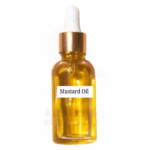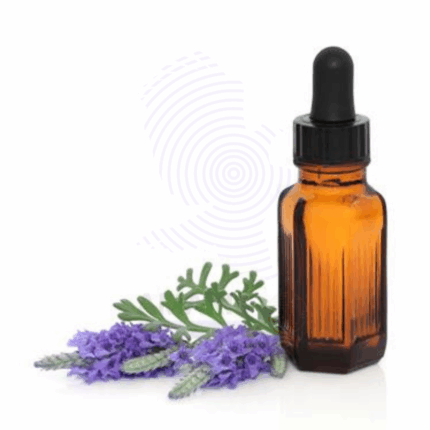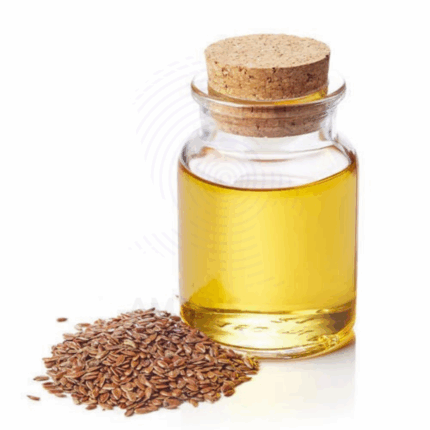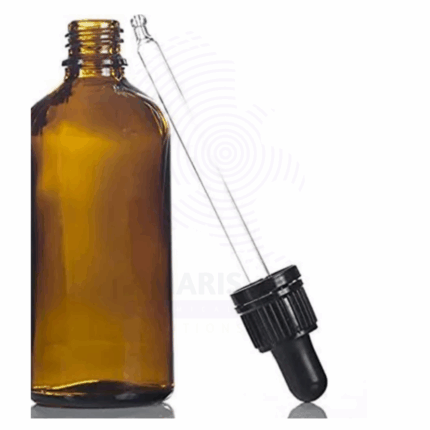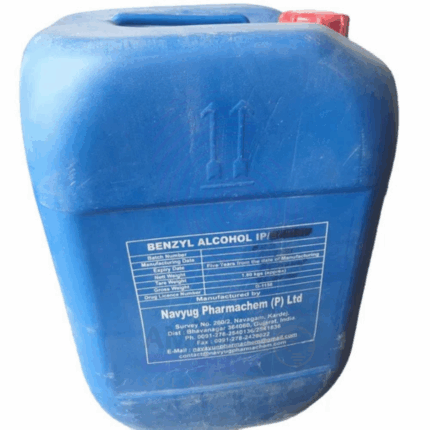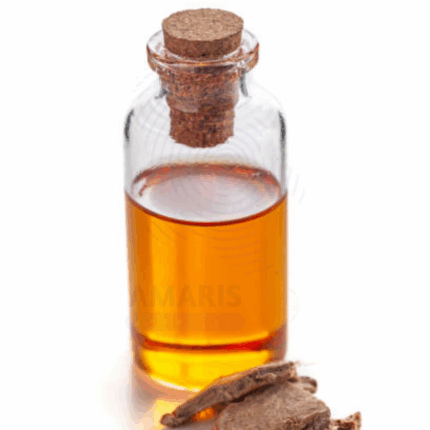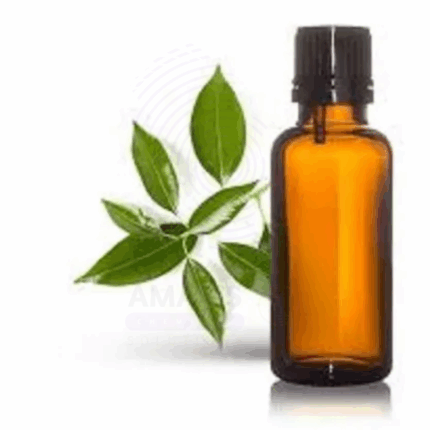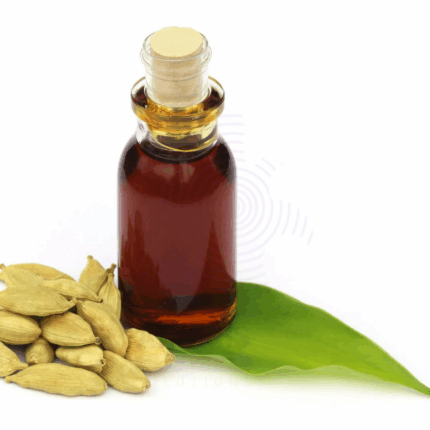Back to products


Palm kernel Oil
$ 14.45 Original price was: $ 14.45.$ 14.36Current price is: $ 14.36.
Myrrh Oil
Whatsapp Order
Myrrh Oil is a rich, amber-colored essential oil obtained through steam distillation of the resin extracted from the Commiphora myrrha tree. Known for its warm, earthy, and balsamic aroma, this ancient oil has been used for thousands of years in traditional medicine, perfumery, and sacred rituals. Myrrh Oil is revered for its powerful antiseptic, anti-inflammatory, astringent, and skin-healing properties. It plays a key role in supporting oral care, skin regeneration, emotional grounding, and immune defense. In modern applications, Myrrh Oil is widely used in premium cosmetic formulations, wellness therapies, and natural perfumery.
Description
Table of Contents
Toggle
Myrrh Oil
Primary Uses
- Aromatherapy & Wellness
- Diffused to calm the mind, promote meditation, and support emotional balance.
- Used in oil blends for immune system support and overall wellness.
- Included in massage oils to ease tension and relieve stress-related symptoms.
- Applied in balms and ointments to reduce swelling and soothe irritated skin.
- Cosmetics and Personal Care
- Added to anti-aging creams, serums, and facial oils for its rejuvenating and wrinkle-reducing effects.
- Used in healing balms and scar treatments for skin repair and tone improvement.
- Included in oral care products such as mouthwashes and toothpaste for its antiseptic properties.
- Blended in foot creams and hand salves to soften cracked or dry skin.
- Incorporated into deodorants and soaps for a warm, grounding fragrance and antimicrobial benefits.
- Applied in beard oils and aftershaves for scent, healing, and skin conditioning.
- Topical Applications
- Used (diluted) on minor wounds, cuts, and abrasions for its antiseptic and healing benefits.
- Blended in compresses and salves to reduce inflammation and promote tissue regeneration.
- Included in natural remedies for fungal infections, eczema, and skin ulcers.
Secondary Uses
- Spa and Therapeutic Products
- Added to bath oils and massage blends for relaxation and skin therapy.
- Used in meditation and grounding oil rollers for spiritual wellness.
- Included in facial steams and clay masks for purifying and calming benefits.
- Fragrance and Ambient Scenting
- Used as a base note in natural perfumery with woody, resinous profiles.
- Blended into incense, candles, and room sprays for a deep, meditative atmosphere.
KEY PRODUCT FEATURES
1. Basic Identification Attributes
- Botanical Name: Commiphora myrrha
- Common/Trade Name: Myrrh Oil
- INCI Name: Commiphora Myrrha Oil
- CAS Number: 8016-37-3
- HS Code: 3301.29
- Synonyms: Myrrha Essential Oil, Commiphora Resin Oil
2. Physical & Chemical Properties
- Physical State: Viscous liquid essential oil
- Color & Odor: Amber to brown; warm, smoky, balsamic aroma
- Solubility: Insoluble in water; soluble in alcohol and carrier oils
- Refractive Index: 1.490 – 1.520
- Specific Gravity: 0.990 – 1.020
- Main Components: Furanoeudesma-1,3-diene, curzerene, lindestrene, elemol
3. Safety & Hazard Attributes
- GHS Classification: May cause skin sensitization; avoid prolonged contact
- Toxicity: Low toxicity when used properly diluted
- Exposure Limits: Refer to Safety Data Sheet (SDS)
- Allergen Information: Contains natural sesquiterpenes and furanoids
4. Storage & Handling Attributes
- Storage Conditions: Store in a cool, dark, and dry location away from direct sunlight
- Container Type: Amber glass or aluminum containers with airtight seals
- Shelf Life: 24 to 36 months under proper storage
- Handling Precautions: Use gloves and avoid inhalation of concentrated vapors
5. Regulatory & Compliance Attributes
- Compliant with IFRA standards for fragrance and cosmetic use
- Manufactured in GMP-certified facilities
- Not classified as hazardous for standard transport
6. Environmental & Health Impact
- Biodegradability: Biodegradable
- Ecotoxicity: Low when used in recommended concentrations
- Bioaccumulation: Not expected to bioaccumulate
SAFETY HANDLING PRECAUTIONS
Safety Handling Precautions
- PPE Required: Gloves and eye protection during industrial handling
- Handling Guidelines: Work in ventilated area; avoid contact with mucous membranes
First Aid Measures
- Inhalation: Move to fresh air; seek medical help if symptoms persist
- Skin Contact: Wash with soap and water; discontinue use if irritation occurs
- Eye Contact: Rinse thoroughly with water for at least 15 minutes
- Ingestion: Do not induce vomiting; seek immediate medical attention
Firefighting Measures
- Fire Hazards: Flammable; avoid heat and open flames
- Extinguishing Media: Dry chemical, foam, carbon dioxide
- Special Precautions: Use self-contained breathing apparatus and full protective gear
- Hazardous Combustion Products: Carbon monoxide, carbon dioxide, aromatic compounds
Related products
Abies Alba oil
Abies Alba Oil, also known as Silver Fir Needle Oil, is a high-purity essential oil extracted via steam distillation from the needles and twigs of the European Silver Fir (Abies alba). Native to the alpine forests of Europe, this oil is prized for its crisp, forest-fresh aroma and therapeutic versatility. Rich in naturally occurring monoterpenes such as alpha-pinene and bornyl acetate, Abies Alba Oil possesses purifying, anti-inflammatory, and antimicrobial qualities.
Its clean, invigorating scent supports respiratory wellness, emotional balance, and mental clarity, making it a popular ingredient in aromatherapy and spa products. It is also used extensively in cosmetic formulations for its deodorizing, skin-soothing, and aromatic effects. Abies Alba Oil is a natural solution for enhancing wellness and sensory experiences across multiple industries.
Abis Sibirica Oil
Abis Sibirica Oil, commonly referred to as Siberian Fir Needle Oil, is a premium-grade essential oil obtained through steam distillation of the needles and twigs of the Abies sibirica tree, native to Siberia and parts of Northern Europe. This oil is renowned for its crisp, woody, and resinous aroma with delicate balsamic undertones. Rich in natural compounds such as bornyl acetate, alpha-pinene, and limonene, Abies Sibirica Oil exhibits powerful antimicrobial, anti-inflammatory, and expectorant properties.
Used traditionally in wellness therapies and natural medicine, this oil supports respiratory comfort, emotional balance, and muscle relief. In modern applications, it serves as a natural fragrance and active ingredient in cosmetics, personal care products, spa treatments, and eco-friendly cleaning solutions. Its invigorating scent and therapeutic versatility make it a staple in essential oil formulations across multiple industries.
Ambrette Seed Oil
Ambrette Seed Oil is a rare, aromatic essential oil derived from the seeds of the Abelmoschus moschatus plant. Known for its rich, musky, slightly sweet, and floral scent, Ambrette Seed Oil is often considered a botanical alternative to animal-derived musk. It is widely prized in high-end perfumery, natural cosmetic formulations, and aromatherapy for its warm, sensual, and long-lasting aroma.
This oil is rich in ambrettolide and farnesol, compounds that lend it a delicate musky note without the synthetic harshness of artificial musks. Ambrette Seed Oil is non-toxic and safe for topical use when diluted, making it ideal for fine fragrances, massage oils, and therapeutic blends.
Basil Exotic oil
Basil Exotic Oil is a steam-distilled essential oil extracted from the leaves of the Ocimum basilicum plant, specifically cultivated for its high linalool and methyl chavicol (estragole) content. Known for its sweet, herbaceous, and slightly spicy aroma, Basil Exotic Oil offers powerful aromatic and therapeutic properties. It is widely used in perfumery, cosmetics, personal care products, and aromatherapy for its stimulating, clarifying, and refreshing effects.
The oil’s high potency and distinctive scent make it a preferred choice in high-end fragrances, hair care products, and massage blends. It is also appreciated for its antibacterial, antifungal, and anti-inflammatory characteristics, making it valuable in natural wellness and skincare formulations.
Benzyl Alcohol
Benzyl Alcohol is an aromatic alcohol with a mild pleasant odor and clear, colorless liquid appearance. It serves as a versatile solvent, preservative, and intermediate in chemical synthesis. Benzyl Alcohol is widely used across pharmaceuticals, cosmetics, paints, coatings, and as a bacteriostatic agent in injectable drugs. Its relatively low toxicity and good solvent properties make it valuable in both industrial and consumer products.
Cabreuva Oil
Cabreuva Oil is a gentle, sweet, woody-scented essential oil obtained via steam distillation of the wood of the Myrocarpus fastigiatus tree, native to South America. This light amber oil is known for its high content of nerolidol—a sesquiterpene alcohol with soothing, anti-inflammatory, and antimicrobial properties. With its mild, balsamic aroma and skin-calming effects, Cabreuva Oil is primarily used in cosmetics, perfumery, and aromatherapy applications.
It blends well with floral, citrus, and resinous oils, making it a versatile fixative in natural fragrance formulations. In personal care, it is valued for its skin-healing and regenerating effects, suitable for mature and sensitive skin types.
Camphor White Oil
Camphor White Oil is a steam-distilled essential oil obtained from the wood of the Camphor tree (Cinnamomum camphora), primarily from the white fraction, which is rich in 1,8-cineole, camphor, and linalool. This fraction is the most commonly used in aromatherapy and topical preparations due to its potent but relatively balanced composition compared to brown or yellow fractions. The oil has a sharp, penetrating aroma with a cooling, medicinal character.
Traditionally used in topical pain relief, respiratory care, and soothing balms, Camphor White Oil is known for its anti-inflammatory, decongestant, antiseptic, and stimulating effects. It is widely used in cosmetics, personal care, pharmaceuticals, and aromatherapy formulations.
Cardamon Oil
Cardamon Oil is a premium essential oil steam-distilled from the seeds of Elettaria cardamomum, a plant native to India and Sri Lanka and widely cultivated across tropical regions. It carries a warm, spicy-sweet aroma with hints of eucalyptus and citrus, and ranges from colorless to pale yellow in appearance. Known for its digestive, antiseptic, expectorant, and uplifting qualities, it is valued in aromatherapy, perfumery, cosmetics, pharmaceuticals, and food applications.
Rich in compounds like cineole (1,8-cineole), α-terpineol, and linalyl acetate, Cardamom Oil provides both flavor and therapeutic effects, making it a versatile ingredient across several industries.


 Preservatives(food)
Preservatives(food) Flavor Enhancers
Flavor Enhancers Acidulants
Acidulants Sweeteners
Sweeteners Antioxidants
Antioxidants Colorants(food)
Colorants(food) Nutraceutical Ingredients (food)
Nutraceutical Ingredients (food) Nutrient Supplements
Nutrient Supplements Emulsifiers
Emulsifiers
 Collectors
Collectors Dust Suppressants
Dust Suppressants Explosives and Blasting Agents
Explosives and Blasting Agents Flocculants and Coagulants
Flocculants and Coagulants Frothers
Frothers Leaching Agents
Leaching Agents pH Modifiers
pH Modifiers Precious Metal Extraction Agents
Precious Metal Extraction Agents
 Antioxidants(plastic)
Antioxidants(plastic) Colorants (Pigments, Dyes)
Colorants (Pigments, Dyes) Fillers and Reinforcements
Fillers and Reinforcements Flame Retardants
Flame Retardants Monomers
Monomers Plasticizers
Plasticizers Polymerization Initiators
Polymerization Initiators Stabilizers (UV, Heat)
Stabilizers (UV, Heat)
 Antifoaming Agents
Antifoaming Agents Chelating Agents
Chelating Agents Coagulants and Flocculants
Coagulants and Flocculants Corrosion Inhibitors
Corrosion Inhibitors Disinfectants and Biocides
Disinfectants and Biocides Oxidizing Agents
Oxidizing Agents pH Adjusters
pH Adjusters Scale Inhibitors( water)
Scale Inhibitors( water)
 Antioxidants(cosmetic)
Antioxidants(cosmetic) Emollients
Emollients Fragrances and Essential Oils
Fragrances and Essential Oils Humectants
Humectants Preservatives
Preservatives Surfactants(cosmetic)
Surfactants(cosmetic) Thickeners
Thickeners UV Filters
UV Filters
 Fertilizers
Fertilizers Soil Conditioners
Soil Conditioners Plant Growth Regulators
Plant Growth Regulators Animal Feed Additives
Animal Feed Additives Biostimulants
Biostimulants Pesticides (Herbicides, Insecticides, Fungicides)
Pesticides (Herbicides, Insecticides, Fungicides)
 Active Pharmaceutical Ingredients (APIs)
Active Pharmaceutical Ingredients (APIs) Excipients
Excipients Solvents(pharmaceutical)
Solvents(pharmaceutical) Antibiotics
Antibiotics Antiseptics and Disinfectants
Antiseptics and Disinfectants Vaccine Adjuvants
Vaccine Adjuvants Nutraceutical Ingredients (pharmaceutical)
Nutraceutical Ingredients (pharmaceutical) Analgesics & Antipyretics
Analgesics & Antipyretics
 Analytical Reagents
Analytical Reagents Solvents(lab)
Solvents(lab) Chromatography Chemicals
Chromatography Chemicals Spectroscopy Reagents
Spectroscopy Reagents microbiology-and-cell-culture-reagents
microbiology-and-cell-culture-reagents Molecular Biology Reagents
Molecular Biology Reagents Biochemical Reagents
Biochemical Reagents Inorganic and Organic Standards
Inorganic and Organic Standards Laboratory Safety Chemicals
Laboratory Safety Chemicals Specialty Laboratory Chemicals(Special Laboratory Equipment)
Specialty Laboratory Chemicals(Special Laboratory Equipment)
 Demulsifiers
Demulsifiers Hydraulic Fracturing Fluids
Hydraulic Fracturing Fluids Scale Inhibitors(oil)
Scale Inhibitors(oil) Surfactants(oil)
Surfactants(oil) Drilling Fluids
Drilling Fluids
 Dyes and Pigments
Dyes and Pigments Bleaching Agents
Bleaching Agents Softening Agents
Softening Agents Finishing Agents
Finishing Agents Antistatic Agents
Antistatic Agents
 Admixtures
Admixtures Waterproofing Agents
Waterproofing Agents Sealants and Adhesives
Sealants and Adhesives Curing Compounds
Curing Compounds Concrete Repair Chemicals
Concrete Repair Chemicals Anti-Corrosion Coatings
Anti-Corrosion Coatings
 Surfactants(cleaning)
Surfactants(cleaning) Builders
Builders Enzymes
Enzymes Solvents (Cleaning)
Solvents (Cleaning) Fragrances
Fragrances
 Electronic Chemicals
Electronic Chemicals Catalysts
Catalysts Lubricants
Lubricants Photographic Chemicals
Photographic Chemicals Refrigerants
Refrigerants Automotive chemicals
Automotive chemicals Pyrotechnic Chemicals
Pyrotechnic Chemicals
 Biodegradable Surfactants
Biodegradable Surfactants Bio-based Solvents
Bio-based Solvents Renewable Polymers
Renewable Polymers Carbon Capture Chemicals
Carbon Capture Chemicals Wastewater Treatment Chemicals
Wastewater Treatment Chemicals
 Pigments
Pigments Solvents(paint)
Solvents(paint) Specialty Coatings
Specialty Coatings Binders/Resins
Binders/Resins Additives
Additives Driers
Driers Anti-Corrosion Agents
Anti-Corrosion Agents Functional Coatings
Functional Coatings Application-Specific Coatings
Application-Specific Coatings
 Leavening Agents
Leavening Agents Dough Conditioners
Dough Conditioners Flour Treatments
Flour Treatments Fat Replacers
Fat Replacers Decoratives
Decoratives Preservatives(baking)
Preservatives(baking)
 Plasticizers & Softeners
Plasticizers & Softeners Reinforcing Agents
Reinforcing Agents Adhesion Promoters
Adhesion Promoters Vulcanizing Agents
Vulcanizing Agents Antidegradants
Antidegradants Blowing Agents
Blowing Agents Fillers & Extenders
Fillers & Extenders Accelerators & Retarders
Accelerators & Retarders
